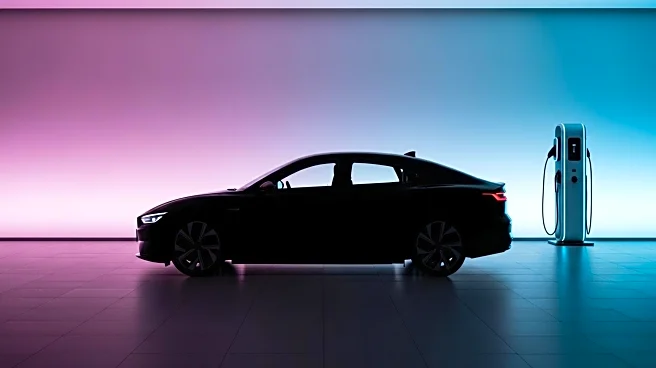What is the story about?
What's Happening?
Volkswagen has introduced a leasing option for its ID.4 Pro electric vehicle, allowing customers to lease the car for approximately $100 per month. This offer comes as the U.S. EV tax credit is phased out, presenting a significant opportunity for consumers looking to transition to electric vehicles. The lease includes a mileage limit of 7,500 miles per year, which suits the needs of the new owner, who drives less than this annually. The ID.4 Pro features a 77 kWh battery, all-wheel drive, and a range of about 263 miles. The vehicle can fast charge at up to 175 kW, reaching 0-60 mph in less than five seconds. The owner, previously driving a 2006 Escalade with poor fuel efficiency, finds the ID.4 Pro to be a more economical and environmentally friendly choice.
Why It's Important?
This leasing offer is significant as it challenges the perception that electric vehicles are prohibitively expensive. By providing an affordable leasing option, Volkswagen is making EVs accessible to a broader audience, potentially accelerating the shift from fossil fuel-powered vehicles to cleaner alternatives. The ID.4 Pro's efficiency, rated at 102 mpge, is a substantial improvement over traditional vehicles, reducing both fuel costs and environmental impact. This move aligns with broader efforts to reduce air pollution and its associated health risks, such as premature deaths and respiratory diseases linked to fossil fuel emissions. The transition to EVs is crucial for achieving sustainability goals and reducing dependency on oil and gas.
What's Next?
As federal incentives for EVs diminish, automakers may need to explore alternative strategies to maintain consumer interest and affordability. Volkswagen's approach could set a precedent for other manufacturers to offer competitive leasing options. The success of this initiative may influence future policy decisions regarding EV incentives and infrastructure development. Additionally, as more consumers opt for electric vehicles, there may be increased demand for public charging stations, particularly in urban areas where home charging is less feasible.
Beyond the Headlines
The broader implications of this development include potential shifts in the automotive industry towards more sustainable practices and increased investment in renewable energy sources. As electric vehicles become more prevalent, there may be a cultural shift in consumer attitudes towards environmental responsibility and energy consumption. This could lead to greater advocacy for clean energy policies and innovation in battery technology and charging infrastructure.















